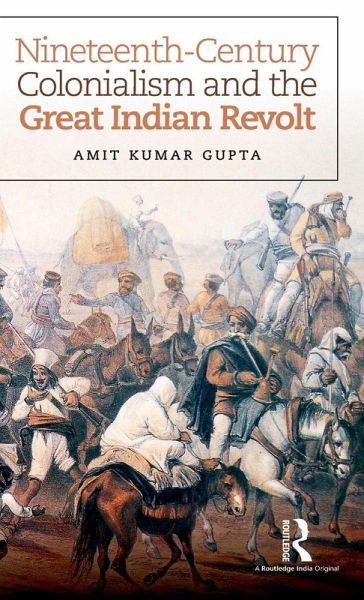
Nineteenth-Century Colonialism and the Great Indian Revolt

PAYBACK Punkte
28 °P sammeln!
This book examines the ruptured characteristics of colonialism in nineteenth-century India. It connects the British East India Company's efforts at the bourgeoisation of India with the Revolt of 1857. The volume shows how the mutiny of Indian sepoys in the British Indian army became a popular uprising of peasants, artisans and discontented aristocrats against the British. Tracing the rationale and consequences of this conflict, the monograph highlights how newly introduced political, economic and agrarian policies as part of industrial Britain's colonial policy wreaked havoc, resulting in high...
This book examines the ruptured characteristics of colonialism in nineteenth-century India. It connects the British East India Company's efforts at the bourgeoisation of India with the Revolt of 1857. The volume shows how the mutiny of Indian sepoys in the British Indian army became a popular uprising of peasants, artisans and discontented aristocrats against the British. Tracing the rationale and consequences of this conflict, the monograph highlights how newly introduced political, economic and agrarian policies as part of industrial Britain's colonial policy wreaked havoc, resulting in high land revenue assessment and its harsh mode of collection, rural indebtedness, steady immiseration of peasants, widespread land alienation, destitution and suicide. Using rare archival sources, this book will be an important intervention in the study of nineteenth-century India, and will deeply interest scholars and researchers of modern Indian history and politics.












